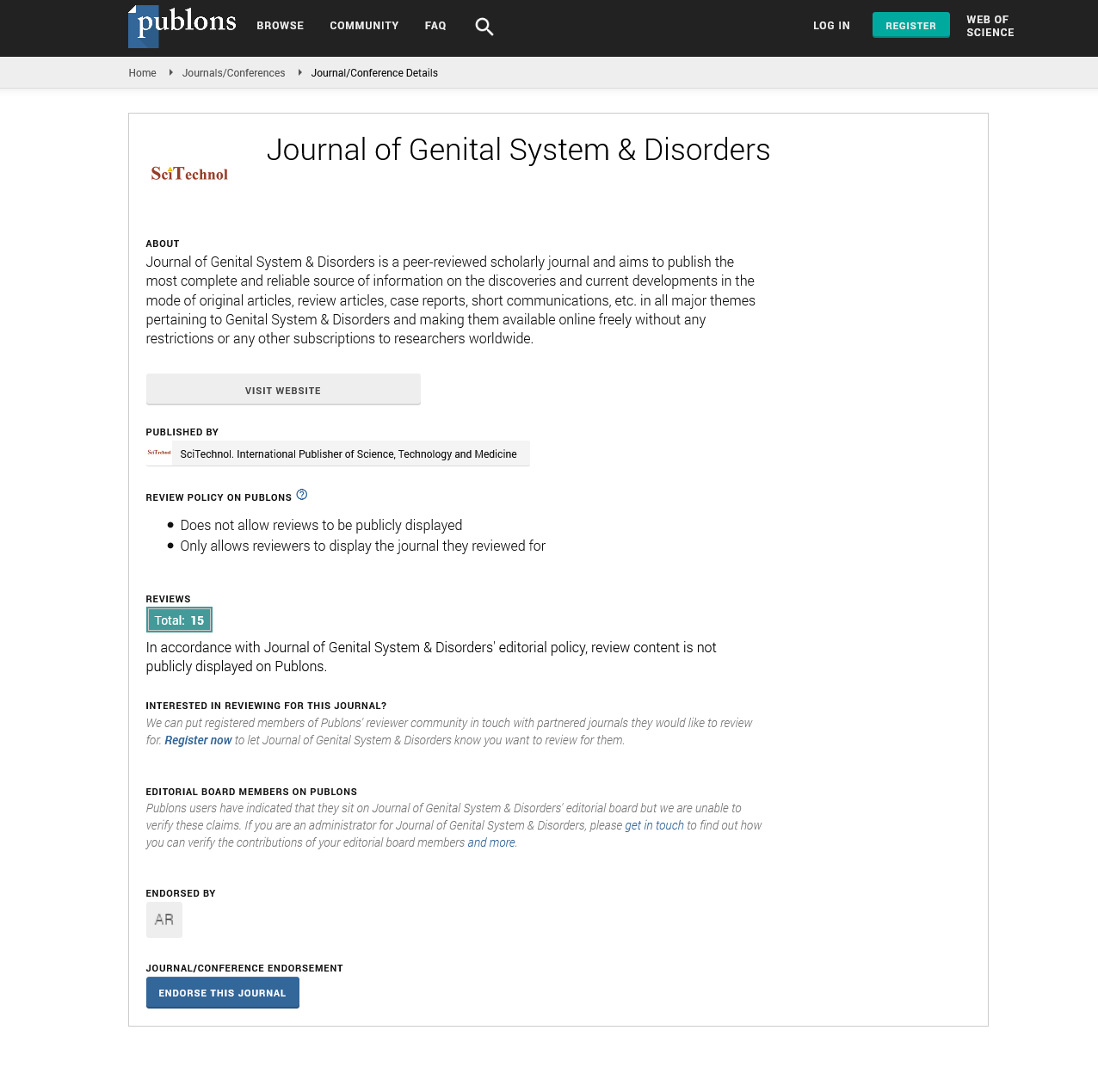Research Article, J Genit Syst Disor Vol: 4 Issue: 2
Mutational Analysis of the LHX1 Gene in a French National Cohort of Patients with Mayer-Rokitansky-Küster-Hauser Syndrome
| Guerrier D1,3*, Folléa N1,3, Voltzenlogel M-C1,2, Pasquier L4 and Morcel K1,2 | |
| 1CNRS UMR 6290 – Institute for Genetics and Development of Rennes (IGDR), F-35043 Rennes, France | |
| 2University Hospital of Rennes, Obstetrics, Gynaecology and Reproductive Medicine Pole (POGYRRE) F-35033 Rennes, France | |
| 3University of Rennes 1, UEB, UMS 3840-Biosit, Faculty of Medicine, F-35043 Rennes, France | |
| 4University Hospital of Rennes, Medical Genetics Department, F-35033 Rennes, France | |
| Corresponding author : Daniel Guerrier, CNRS UMR 6290 – IDGR, University of Rennes 1 – Faculty of Medicine – 2 avenue du Professeur Léon Bernard, Rennes, F–35033, France Tel: +33 (0)2 23 23 46 79 E–mail: daniel.guerrier@univ–rennes1.fr, nicolas.follea@univ–rennes1.fr, mariecatherine.voltzenlogel@chu–rennes.fr, karine.morcel@chu–rennes.fr |
|
| Received: May 29, 2015 Accepted: June 23, 2015 Published: June 30, 2015 | |
| Citation: Guerrier D, Folléa N, Voltzenlogel M–C, Pasquier L, Morcel K (2015) Mutational Analysis of the LHX1 Gene in a French National Cohort of Patients with Mayer–Rokitansky–Küster–Hauser Syndrome. J Genit Syst Disor 4:2. doi:10.4172/2325-9728.1000137 |
Abstract
Mutational Analysis of the LHX1 Gene in a French National Cohort of Patients with Mayer-Rokitansky-Küster-Hauser Syndrome
Mayer-Rokitansky-Küster-Hauser syndrome (MRKH syndrome) is characterized by congenital aplasia of the uterus and the upper part of the vagina in women showing normal secondary sexual characteristics development and a normal 46, XX karyotype. MRKH syndrome is a cause of primary amenorrhea with an incidence of approximately 1 in 5,000 newborn girls. Most cases of MRKH syndrome are sporadic, but some familial cases have been reported, suggesting a genetic cause. The genetic basis of MRKH syndrome remains largely unknown and seems heterogeneous. The LHX1 gene has been suggested to be a strong candidate, because (i) inactivation of the ortholog gene (Lim1) in the mouse model causes a Müllerian aplasia, and (ii) it is located in the chromosomal region 17q12, where deletions including this gene have been identified in approximately 5% of MRKH patients. Recently, three relevant heterozygous mutations of the LHX1 gene have been reported in association with the syndrome.
 Spanish
Spanish  Chinese
Chinese  Russian
Russian  German
German  French
French  Japanese
Japanese  Portuguese
Portuguese  Hindi
Hindi 
